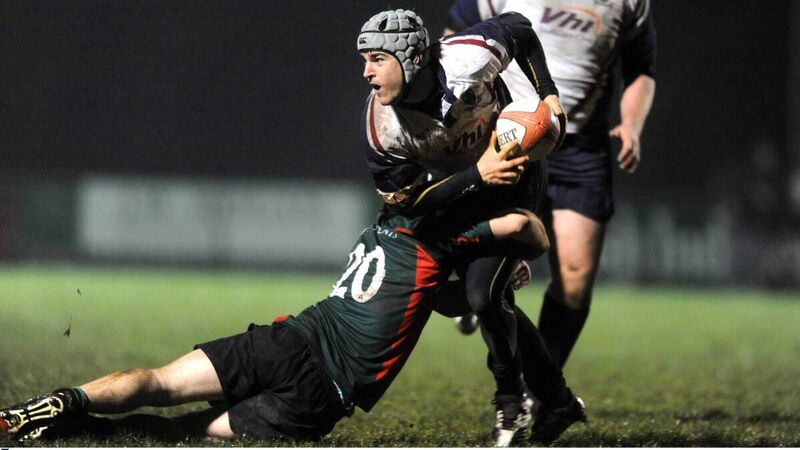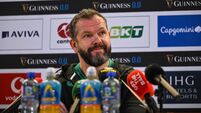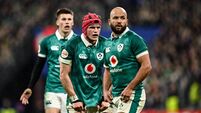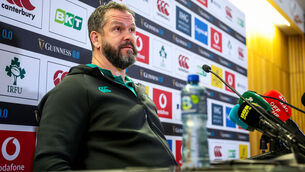Dublin Hospitals Rugby Cup: Tales of japes, rows, and skulduggery

Luke Dan, Beaumont Hospital, is tackled by Michael Boland, St Vincents Hospital in the 2008 Dublin Hospitals Cup final. Picture: Matt Browne
History tells us that Andy Courtney was born in Nenagh, graduated from University College Dublin (UCD) and became the first man from UCD to represent Ireland in rugby when he finished on the losing side against the Scots in the Edinburgh suburb of Inverleith back in 1920.
That’s the basic sketch.











